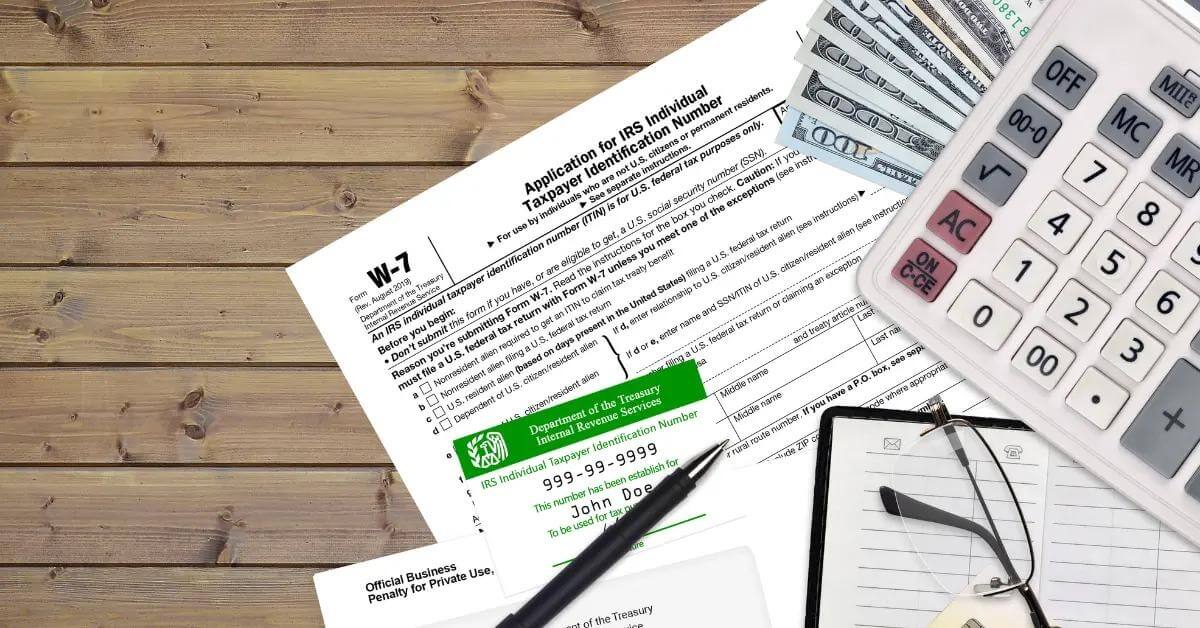We know you have your charity donation and tax strategy all figured out in advance each year. But now the tax laws have changed.
How will the tax law reforms affect your charitable deductions? Is there anything you will need to do differently when you file in 2020 for 2019?
We are here for you to explain the new charitable deduction tax reforms. We are also going to explain how it affects your itemized tax return for next year.
We will be giving you information on some new tax strategies you can think over to ensure you still receive some of the tax breaks you need.
Most people do not understand the IRS and taxes even when the IRS has the same system in place over the decades.
But when the IRS and tax laws change many people become confused and anxious. They want to go to where there are answers to their questions.
What’s more, they want to go where there are people who not only know the answers to their questions but also care about them.
We are the tax attorneys who have the experience, the commitment and the stellar tax advice you need.
We are known for giving sound tax advice through our consulting services. We will consult on taxes with everything from small business deductions to what happens when the IRS suspects tax fraud?
Tax Reform Charitable Deduction
The tax reform of 2017 made many charities grow concerned. The charities felt their regular donors would not continue to donate in 2018.
This fear of having fewer donors revolved around the doubling of the standard deduction to $24,000 for married couples filing jointly. The standard deduction for single individuals grew to $12,000.
Charities felt people would not go to the trouble of itemizing their 2018 tax returns as most would not meet the $12,000 or $24,000 threshold. The charities ended up being correct.
The good news is individual giving declined only by 1.1%. Individual donations still brought in about $292 billion dollars in charitable donations.
What’s more, there is a case to be made that the United States’ overall charity giving went up.
Charitable donations went up if you include donations to foundations, corporations, bequests, and individuals. These charitable donations rose by .7%.
To understand why all of this is making a difference to charitable deductions one has to understand the new tax laws background.
Congress passed the Tax Cuts and Jobs Act in December of 2017. There was only one change made to charitable contribution deductions but it was a noticeable one.
The Tax Cuts and Job Acts of December 2018 changed our deductible charitable contributions from 50% to 60% of adjusted gross income.
To put it another way, up until 2018 around 30 percent of taxpayers itemized their deductions and took the 50% of the adjusted gross income as a charitable deduction.
Under the new tax reform, many charities are convinced as few as five percent of taxpayers will continue to give as much. Therefore, they will have far fewer donations.
Charitable Deductions in New Tax Bill
There are still many tax deductions which can be taken under the new tax bill law. We go over some of the best tax deductions out there right now which may be suitable for your work and life.
But people and their charitable deductions have always marched to the beat of their own drum. Charitable deductions have always had their own rules and regulations.
There are ways to still receive the charitable deduction tax credits you want while meeting all the new tax law rules.
Charitable Deductions with New Tax Bill
Here are some ways to still get your charitable deductions even with the new tax bill;
- Go ‘bunching.’ Bunching means what it sounds like. Instead of giving a certain amount on a yearly basis, go bigger and give more every other year.
- In other words, if you used to give $10,000 a year to charity, skip a year.
- In the second year give the charity $20,000. The charity still gets the same amount of money and you get to take the itemized charitable deduction.
- Use donor-advised funds. Donor-advised funds give you immediate tax breaks if you commit to charitable contributions for a full donation which meets the new tax law mandate.
- You can use the donor-advised funds for grants you want various charities to receive.
- They will receive funding over a period of time.
- IRA funds. IRA funds can be used for your favorite charities under the new tax laws if you are 70 1/2 years old or more.
- The IRA funds given to charities meet the required minimum distribution level of the new tax law. You don’t even have to itemize the deductions to receive the tax break for the charitable deduction.
- Donate your appreciated assets. Do you have an old painting or antique which has done nothing but appreciate in value over the years?
- If you donate the appreciable asset you can still have the tax advantage that comes with charitable deductions.
Charitable Deductions New Tax Plan
Now that you know there are new charitable deductions rules and regulations it is important you have a plan of action for your donations.
Many people have taken tax deductions over the years for their charitable donations and never once itemized their tax deductions.
They usually gave an estimate of what they think they gave and reported that figure.
That was never a good idea and it is definitely not a good way to move forward under the new charitable deduction tax plan.
In addition to that group of people, there are many people who give each year to charities who never claim anything on their taxes.
They give to charities every year but never take the charitable deduction line item on their yearly taxes.
It’s a true statement to say that neither group of people will be affected by the higher standard deduction for charitable donations. So it won’t influence their donation giving one way or the other.
But if you are giving to charity throughout 2019 than you want to keep your charitable donation receipts. That way you can itemize when doing your 2019 taxes in 2020.
Reducing your Tax Bill without Itemizing Deductions
There are ways to reduce your tax bill in general without itemizing your deductions. We have listed some of those ways below;
- Use the above the line deductions. Above the line tax deductions are deductions every taxpayer is allowed to take without itemization. This includes, but is not limited to;
- Health savings accounts
- IRA’s
- Remember IRA’s can be used to donate to charities without the new tax law mandate being applied. This is if the charitable deduction from the IRA is done correctly, at the right age, and in the right order.
- You can use tax credits available to you and give them to your favorite charities. The use of your tax credits never requires itemized deductions.
- Bundle your charitable deductions into more than one year so you have a bigger dollar amount you take once after a couple of years.
- This allows you to meet the new tax law’s itemized financial dollar amount threshold.
In the end, it won’t matter what legal financial engine you use to meet the charitable deduction new tax plan.
It will only matter that you stay committed to donating to your own worthy cause favorites.
Charitable Deductions New Tax Bill
What is the charitable deduction new tax bill about? How does it work? Who does it apply to?
We are here to share some information about the ins and outs of the charitable deduction new tax bill in a plain and logical way.
No matter what you heard about this new tax bill it did not take away deductions for the gifts you make to nonprofit charities.
Most of the charitable deduction laws for your taxes stayed the same. Tax experts have been saying for years that taxpayers need to give their itemized charitable tax donations in bigger chunks at a time.
Or give charitable donations through appreciated assets. Giving a little bit at a time sometimes makes taxes a nightmare through the itemization needed.
That’s why sometimes it is prudent to have a tax lawyer advising you on changes in tax laws. It doesn’t take much to trigger an IRS tax audit.
Taking charitable deductions which do not meet the new tax law charitable deduction mandates is one way to give your taxes a big red audit flag.
There is no such thing as a small tax matter. Not even when dealing with something as noble as your charitable donations.
Tax laws always have one thing that stays the same. Tax laws are always complicated.
Having a tax lawyer in your corner saves you untold time, penalties and interest if the worst happens.
You need a tax attorney you can count on if your account is flagged by the IRS for any reason.
Charitable Deductions
In general, it is very important to understand charitable deductions. With the new tax law for charitable deductions, it is not only very important it is mandatory if you want to donate.
As a United States taxpayer, there is only certain places and organizations you can give to which allow you a charitable deduction.
These charitable deductions are defined under section 170(c) of the Internal Revenue Code. They are as follows:
- You can give to a state or United State possession if you make the donation for exclusively public purposes.
- You can get a charitable deduction if you give to a community chest, foundation, trust, corporation, or fund organized exclusively for charitable purposes.
- This includes charitable purposes for religious, educational, scientific, prevention of cruelty to children or animals, or literary organizations.
- You can get a charitable deduction if you give to a church or any other religious organization.
- You can get a charitable deduction if you give to a veteran’s organization or its US auxiliary trust or foundation.
- You can get a charitable deduction if you give to a fire department which is a nonprofit.
- Any civil defense organization created by federal, state, or local law gives you the right to receive charitable deductions.
- Any domestic fraternal society which uses the lodge system is eligible for charitable deduction but only if used exclusively for charitable purposes.
- A nonprofit cemetery allows you to take a charitable deduction but only if the cemetery is dedicated to perpetual care as a whole.
What Do I Need for my Charitable Deductions in 2019?
The first thing you need for the charitable deductions you want to take in 2019 is a good tax attorney.
There are a plethora of options a good tax attorney can give you which helps guide and explain the new tax law reforms.
We are one of the best tax attorney groups around. Our tax attorney consulting and legal experience span four decades.
That gives you forty years of collective legal expertise. That’s hard to beat. Our tax attorney services start with our renowned civil services. But we can also help you with any IRS issues or criminal tax matters.
These are challenging times when dealing with tax reforms with new charitable deductions. The IRS is regrouping and refocusing.
Sometimes that means people get scrutinized by the IRS when least expected. We are always there for our clients and we walk them through every step for any tax issue we are working on together.
The IRS always works with us because their end goal is to resolve tax cases. Your end goal with this issue is to make sure you understand what you need to do before you have any problems with your charitable deductions.
There is no better time to have a tax attorney in your circle then when tax laws change and tax reform is ongoing.
We are the tax attorneys you want during this new era of tax reform. Every day you want to give to a charitable organization is a day you need to understand and consult with our team of tax professionals.
We have the latest and greatest information on charitable deductions and we want to share it with you.
Give to every charity you want to and still receive the tax benefits in charitable deductions you deserve. Contact us now so we can ensure your giving nature allows you to receive the maximum charitable deduction tax credit.








